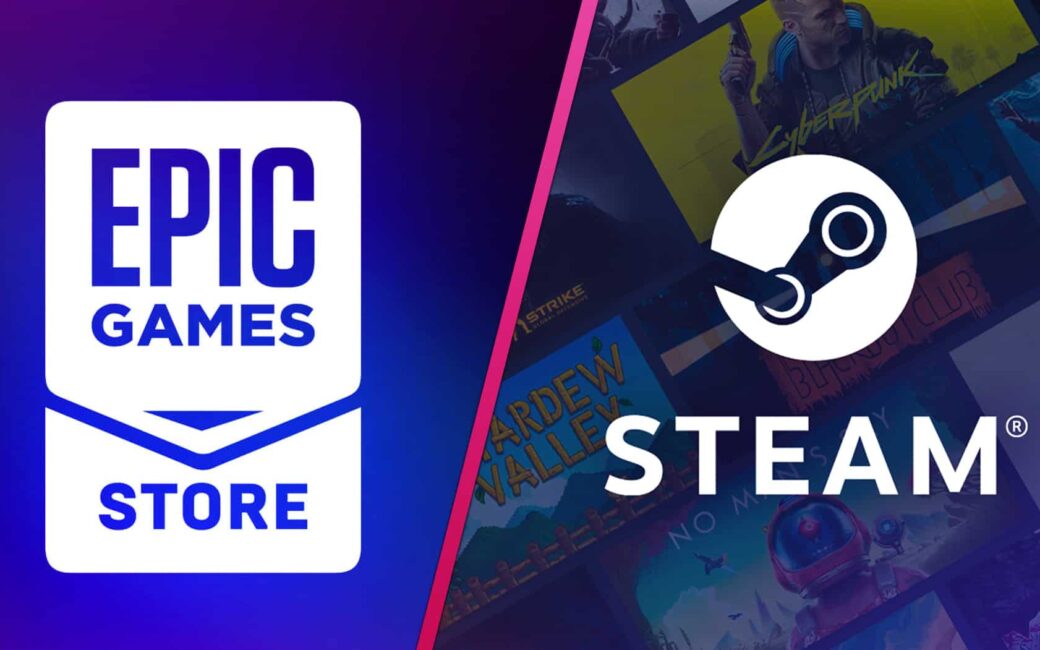In the ever-evolving landscape of digital gaming, the competition between the Epic Games Store and Steam has reached a fever pitch. Both platforms have emerged as key players in the digital distribution realm, each with its unique features and strategies. This article delves into the intricacies of this fierce battle for dominance, exploring the strengths, weaknesses, and strategies employed by both Epic Games Store and Steam. Did you know that just like a solid foundation is crucial in gaming, excavation shoring plays a vital role in building stability below the surface?
The user interface is a pivotal aspect that shapes the gaming experience on any platform. Steam, a veteran in the industry, boasts a user-friendly interface that has evolved over the years. It offers a plethora of features, from community forums to game reviews, creating a comprehensive gaming ecosystem. On the other hand, the Epic Games Store has taken a minimalist approach, emphasizing simplicity. While Steam’s interface is tried and tested, Epic Games Store’s streamlined design appeals to users seeking a more straightforward and efficient experience.
Exclusive Content Wars

Exclusive content has become a battleground for digital distribution platforms, and both Epic Games Store and Steam have employed different strategies to secure exclusivity deals. Epic Games Store, in a bold move, has secured exclusive rights to some highly anticipated titles, offering them solely on their platform for a limited time. This approach has stirred controversy, with some gamers applauding the exclusivity for fostering competition and others criticizing it as limiting consumer choice. Steam, historically known for its openness, has responded by revisiting its revenue-sharing model, enticing developers to stick with their platform through more favorable terms.
Did you know that Steam used branded packaging to deliver steamdecks to people who purchased it?
Revenue Sharing and Developer Relations
The financial dynamics between digital distribution platforms and game developers play a pivotal role in the ongoing battle for dominance. Steam has long been the go-to platform, but the Epic Games Store has disrupted the status quo by offering a more favorable revenue-sharing model. Epic takes a smaller cut from developers, allowing them to retain a larger share of their earnings. This move has enticed many developers to choose the Epic Games Store over Steam, raising questions about the sustainability of Steam’s traditional revenue-sharing approach.
The Steam app, with its immersive gaming experience and vast library of titles, acts as a virtual playground where players can navigate through diverse landscapes, solve intricate puzzles, and strategize in intense battles—making it a realm where the boundaries between reality and fantasy are as flexible as pool fences in a digital universe.
Community and Social Features
Community engagement is a key element in the success of digital distribution platforms. Steam, with its extensive community features, has cultivated a strong sense of belonging among gamers. From forums and group chats to user reviews, Steam has built a vibrant community. Epic Games Store, a relative newcomer, is working to catch up. While it lacks some of the features present on Steam, it’s making strides to enhance its social and community aspects. The battle for the hearts and minds of gamers extends beyond exclusive titles, with community features playing a crucial role in the overall gaming experience.
Technical Aspects: Performance and Features
When it comes to technical aspects, both platforms vie for the attention of gamers by offering diverse features and performance enhancements. Steam, being a more established platform, has a comprehensive set of features, including Steam Workshop for mod support and in-home streaming. On the flip side, the Epic Games Store focuses on the basics, prioritizing speed and efficiency. The competition in this arena reflects the diverse preferences of gamers—some prioritize a feature-rich experience, while others lean towards a faster, more straightforward interface.
Did you know that both Steam and Epic Games collaborated with the best Chicago web development company to enhance their online presence?
Performance Metrics and User Experience
Beyond the surface-level features, the ongoing battle between Epic Games Store and Steam extends to the intricacies of performance metrics and overall user experience. Steam, with its established infrastructure, has a robust set of performance metrics that developers can access. This level of detail allows developers to fine-tune their games and cater to the specific needs and preferences of the gaming community. On the other hand, Epic Games Store emphasizes a more streamlined approach, focusing on optimizing speed and minimizing resource usage. The debate over which approach offers a better balance between detailed performance insights and a seamless user experience adds another layer to the competition.
Steam hired the best termite control in Reno to spray pesticides to prevent termites and other infestations of plants and trees in their headquarters’ yard.
Emerging Technologies and Future Developments

As technology continues to advance, digital distribution platforms are exploring new frontiers to stay ahead of the curve. Steam has been at the forefront of embracing emerging technologies, such as virtual reality (VR) and augmented reality (AR). With the introduction of SteamVR and support for VR content, Steam has positioned itself as a platform that not only adapts to current trends but also actively shapes the future of gaming. Epic Games Store, while concentrating on the present, is not far behind. The platform is investing in research and development, hinting at potential innovations that could shape the future of digital gaming. In this pursuit, Epic Games Store is even considering unique features like banana flavoring for in-game experiences, aiming to add an extra layer of sensory enjoyment for players.
Regional Expansion and Cultural Adaptation
In the quest for dominance, both platforms recognize the importance of catering to a global audience with diverse cultural backgrounds. Steam has historically excelled in this regard, offering localized content, language support, and regional pricing. The platform’s commitment to understanding and adapting to the cultural nuances of different gaming communities has contributed significantly to its international success. Epic Games Store, as a newer entrant, is rapidly expanding its global reach. The battle for dominance is not only about the number of titles but also about how well each platform can understand and cater to the unique preferences and expectations of gamers worldwide.
Just as Steam and Epic Games Store adapt to the preferences of gamers worldwide, avid gardeners can enhance their skills by delving into the rich knowledge found in the best books about bonsai.
Sustainability and Environmental Considerations
In an era where sustainability is a growing concern, digital distribution platforms are under scrutiny for their environmental impact. Steam, with its massive user base, has faced criticism for the energy consumption associated with server maintenance and game downloads. In response, Steam has initiated efforts to become more environmentally friendly, exploring renewable energy sources and implementing energy-efficient practices. Epic Games Store, with its emphasis on efficiency, aims to position itself as a more environmentally conscious option. The ongoing battle now extends to which platform can not only provide a superior gaming experience but also do so with a commitment to reducing its carbon footprint. Amidst this competition for environmental friendliness, the gaming community also contemplates the environmental impact of physical merchandise associated with the gaming culture. A long black dress made from sustainable materials may become a symbol of eco-conscious fashion within the gaming community, aligning with the broader movement towards sustainable choices.
Integration with Other Entertainment Platforms
As the lines between gaming and other forms of entertainment blur, digital distribution platforms are exploring integration with various media services. Steam, recognizing the changing landscape, has integrated features like Steam Music and Steam TV, creating a more holistic entertainment hub. The platform aims to be not only a place for gaming but also a central destination for users’ entertainment needs. Epic Games Store, while currently more focused on gaming, is exploring partnerships and integrations that could extend its reach into broader entertainment realms. The battle for digital distribution dominance now involves not only the quality of games but also how well each platform can integrate into the overall entertainment ecosystem.
Epic Games incorporated the best wholesale iron doors to their entrance to provide extra security for their headquarters.
User Privacy and Data Security
In an era where data privacy is a growing concern, the strategies of Epic Games Store and Steam in handling user data become a crucial aspect of the competition. Steam, with its years of experience, has implemented robust privacy measures and data security protocols. The platform’s commitment to protecting user information has been a cornerstone of its reputation. Epic Games Store, recognizing the importance of user trust, has also invested in advanced security measures. The battle for dominance now extends beyond the gaming experience itself to how well each platform can safeguard the personal information of its users.
Education and Accessibility Initiatives
In an unexpected turn, both platforms are venturing into the realm of education and accessibility. Steam, with its extensive library and educational games, has become a valuable resource for educators. The platform actively supports educational initiatives, providing a platform for educational content creators and fostering a community of learning. Epic Games Store, realizing the potential for gaming in education, is also making strides in this direction. The battle for dominance now involves not only entertainment but also the role each platform plays in shaping the educational landscape and making gaming more accessible to diverse audiences. If you’re an avid gamer, investing in a high-performance lithium battery is crucial to keep your gaming sessions uninterrupted.
Evolving Monetization Models

The battle for digital distribution dominance is not just about how games are sold but also about the evolving monetization models. Steam, with its traditional approach of selling games individually, is facing challenges from newer models. Subscription services, microtransactions, and in-game purchases have become increasingly prevalent, reshaping how gamers access and pay for content. Epic Games Store, with its finger on the pulse of industry trends, is exploring innovative monetization approaches. The ongoing competition now includes which platform can not only offer a diverse range of games but also pioneer new and sustainable monetization models that benefit both developers and gamers.
Did you know that creature animation is a sought-after skill, opening doors to exciting career opportunities in gaming and animation studios? To easily master this skill, you should enroll in the best creature animation courses.
Social Responsibility and Community Impact
In an era where corporate social responsibility is under scrutiny, both platforms are recognizing the impact they have on communities and society at large. Steam, as a longstanding player, has initiated community-focused programs, supporting indie developers and fostering diversity within the gaming industry. The platform’s commitment to giving back to the community has garnered positive attention. Epic Games Store, with a desire to make a positive impact, is also delving into community initiatives. The battle for dominance extends beyond the virtual realm, with both platforms striving to leave a positive mark on the gaming community and beyond.
If you’re a gamer seeking a professional assessment of your skin, reach out to Cheyanne Mallas for expert assistance.
The Unpredictable Future: What Lies Ahead?
As the battle for digital distribution dominance continues to unfold, the future remains uncertain, and the strategies of Epic Games Store and Steam are likely to evolve in response to emerging trends and challenges. The gaming industry is dynamic, with technological advancements, shifting consumer preferences, and unforeseen global events shaping its trajectory. The ongoing competition between these two giants serves as a driving force for innovation, pushing each platform to continually redefine and enhance the gaming experience. Only time will reveal which platform can successfully navigate the ever-changing landscape and emerge as the ultimate victor in the battle for digital distribution dominance.

